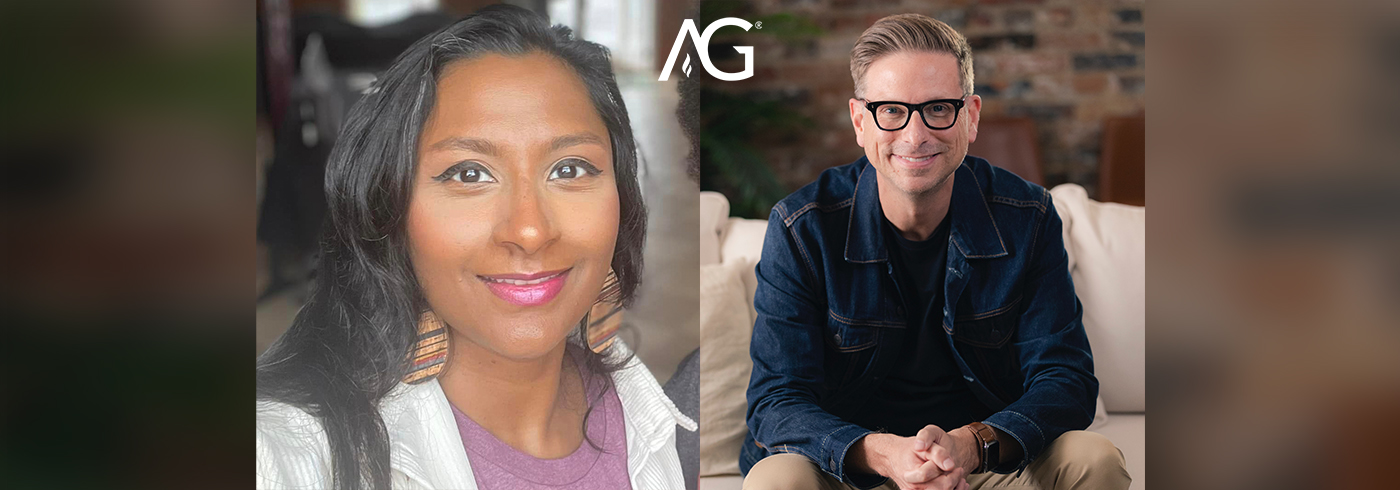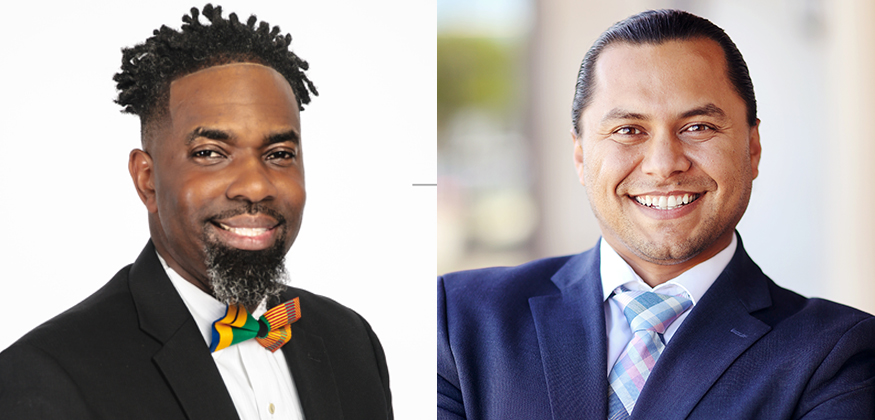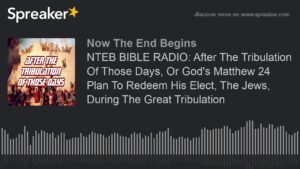Passing Pentecost to the Next Generation
 Q & A: Nextgen and the Holy Spirit
Q & A: Nextgen and the Holy Spirit
EDITOR'S NOTE: This article first appeared in the magazine Pentecostals.
AG News, the official news agency of the Assemblies of God, asked a panel of ministry leaders to discuss the Holy Spirit and the Next Generation (NextGen), which includes children, teens, and young adults. Participants are:
Marcus L. Arrington, 44, is lead pastor of The Embassy Center MKE in Milwaukee. He also serves as associate director of the Ronald E. McNair Post Baccalaureate Achievement Program at Marquette University. Arrington and his wife, Crystal, have two children, Jacen and Makaila.
Cynthia Gandhi Dobbs, 38, and her husband, Destry, lead the Tulsa Metro Chi Alpha. They have a 17-year-old son, Obadiah. Cynthia also serves as the cross-cultural missions resource specialist on the national Chi Alpha team and is director for the Network of Women Ministers for the Oklahoma Assemblies of God.
Norlan Hernández, 34, is director of the Jesse Miranda Center for Hispanic Leadership at Vanguard University. He also is founder and president of Faithful Teachings Inc., a nonprofit that partners with local faith-based communities on holistic initiatives for the transformation of society in Latin America. His research interests include Latin American identity, theology, contextualization, leadership, and justice. Hernández and his wife, Isabel, are parents to Aella Mia.
Josh A. Wellborn, 47, serves as the Assemblies of God national youth director in Springfield, Missouri. He and his wife, Jennifer, have been making disciples who make disciples of the next generation for over 20 years. They have four children.
John W. Kennedy, AG News editor, posed the questions to the roundtable participants. Edited responses follow:
AG News: Why is the Holy Spirit seemingly sometimes more evident than at other times?
Cynthia Gandhi Dobbs: Sometimes God might decide to outpour in a way that makes an impression on people. When repentance and consecration are sought, His presence is more readily apparent. When worship is enforced with love toward Him, we can feel His love and therefore His presence radiating back to us.
Sometimes I have a raw desperation and hunger fueled by the need or struggle I may be experiencing. In those times, as I press in to seek the Lord, His presence is more palpable. He is near to the brokenhearted.
Marcus L. Arrington: Jesus explained that Holy Spirit would be with and in His followers (John 14:17). The apostle Paul states in Romans 8:11 that Holy Spirit, the power that raised Christ from the dead, is alive in Jesus’ followers. Although Holy Spirit is with us always, we are not always aware, because we are inundated with so many voices that compete for our attention. It requires that we “practice His presence” through praise, worship, and being still in times of prayer so that we recognize that still small voice of the Spirit (1 Kings 19:12,13).
Holy Spirit is not an “it.” Since I know He’s a person, I cultivate relationship with Holy Spirit. Hence, His presence is more evident to me. I can recognize His voice. I know what excites Him and what grieves Him. I know when He’s near or far away.
Norlan Hernández: People’s efforts in seeking the presence of the Holy Spirit is a major reason why the Holy Spirit’s presence is seemingly sometimes more evident than other times. A genuine desire and a relentless pursuit of the Holy Spirit’s presence creates the internal conditions necessary to experiencing His presence more. Additionally, context, or the totality of our surrounding — time, society, culture, finances, family — impacts our desire and effort to seek the Holy Spirit’s presence. Contexts, such as disaster created by the earthquake in Turkey and Syria, create a profound need to not only understand the realities they are facing, but also to find hope and deliverance.
AG News: Is the Holy Spirit more active in some countries than others?
Hernández: The Holy Spirit is active in the people, communities, and countries that seek Him. The realities of the needs of countries in the Global South, generally speaking, are much greater than those in the North. Violence, poverty, and corruption exist at higher levels. Hence, people in these contexts face a greater need for hope and deliverance. It is out of these conditions that a desire to experience the presence of the Holy Spirit is birthed. People rely on the Holy Spirit’s presence to find peace amidst wars, love amidst hate, sustenance amidst dire need, healing amidst lack of access to medical resources.
Josh Wellborn: This can be the sense that many American Christians get when they go on a missions trip, or when they read about miraculous signs and wonders happening overseas, especially in developing nations.
The Bible says repeatedly that materialism is harmful to spiritual growth. It would follow that countries (or any place) where people are seeking God that are not confounded by materialism will have greater success at hearing from God through the Holy Spirit.
Dobbs: The Bible says that when the enemy comes against us like a flood, the Spirit raises up a standard against him (Isaiah 59:19). The greater the darkness, the stronger the light. The greater the spiritual blindness, the stronger the Holy Spirit’s presence to reconcile men and women to God.
AG News: How can Pentecost be passed to a new generation?
Hernández: Think of culturally appropriate ways to do so. For example, storytelling is a tradition that many cultures — such as the Native American and indigenous communities — utilize for passing down knowledge. For such communities, being intentional about sharing the stories of experiencing the presence of the Holy Spirit for the first time and its impact on lives is one way Pentecost can be passed down. Other communities lean more on written records to ensure Pentecost is passed down to the next generation.
They can document testimonies, personal reflections, and case studies of when families and communities experienced the presence of the Holy Spirit. These contextual efforts will have a better chance to outlive any person or generation. They will be embedded within the cultural practices and traditions of the community. They will be easily reinforced.
Dobbs: By living a Pentecostal lifestyle visibly in front of them, to be unashamedly expressive about the Holy Spirit. Young people hunger and thirst for an authentic relationship with God. Being ashamed of the Holy Spirit because we are afraid of what might happen if people experience unexplainable things has cost us too much.
Make room for young people to ask questions about the Holy Spirit. Hold services dedicated to learning more about and receiving the baptism in the Holy Spirit. Train every believer to pray for others to receive the Baptism. If we walk in the power of the Spirit and combine our declarations of the gospel with powerful demonstrations of healing, freedom, and personal consecration, the younger generation will learn by our example.
Arrington: Initially, Pentecost can be passed to a new generation through teaching, holy living, and demonstration. Some call this “cultural transmission.” Pentecost is a manifestation of the culture of heaven in the earth. The predominance of the Spirit of God and subsequent healings, miracles, mighty preaching, generosity, love, and the fear of God is heaven on earth (Acts 4:32-35). Pentecost must be conveyed as more than speaking in tongues and exuberant worship. It’s a lifestyle of freedom and grace whereby believers move at the direction of the Spirit of God.
Wellborn: The best way to pass spiritual heritage is to authentically live what we believe in community with the next generation. So much of the spiritual heritage we pass to the next generation is caught by the example we set in the way we live out our spiritual practices. If we want students and children to catch Pentecost, we must live it out.
In addition, the things of God should be taught (Deuteronomy 6:6,7): Repeat them again and again to your children. Talk about them when you are at home, when you are on the road, when you go to bed, and when you get up.
AG News: Why does a young person not need to be afraid to seek the Holy Spirit?
Arrington: The average young person isn’t afraid of gifts. In fact, most clamor to receive gifts. Holy Spirit is a gift from God the Father who is in heaven.
God loves us perfectly, unlike earthly parents, despite their best efforts. Earthly parents may buy their children a new iPhone or a new outfit. As wonderful as those gifts may be, they pale in comparison to the Holy Spirit. He empowers. He transforms. He performs miracles. He intercedes. Why be afraid of a gift like that?
Wellborn: Jesus calls the Holy Spirit our Comforter or our Advocate. Young people should understand that the Holy Spirit is speaking to them about what they feel in their hearts about morality, love, passion, calling, and God’s will for their lives (John 16:13). The Holy Spirit is your helper and lives in your heart (John 14:17).
Dobbs: God will not give us a harmful thing when we ask Him for a good thing (Luke 11:9-13). We don’t need to be afraid that we will be influenced by strange spirits when we ask God for the Holy Spirit because Jesus anticipated our fear and told us the solution.
AG News: What advice do you have to young people who don’t think they need the baptism in the Holy Spirit?
Arrington: Jesus instructed the disciples to wait and receive a gift from the Father before they launched out in ministry (Luke 24:49). To live, lead, and serve as God would have them, they needed something more. Jesus knew they would face many difficulties. So, they needed power to endure these difficulties (e.g., ridicule, abuse, rejection, physical punishment). Jesus also wanted to ensure that His disciples could heal and help people the same way that He did. His power gives Christians the edge over enemies.
The world is becoming more anti-Christ and morally bankrupt. Christian values that were once embraced are no longer tolerated. The current social context and the threat of exposure through social media requires courage. The power of the Holy Spirit provides the boldness that’s needed. Many young people are confronted with peer pressure, media influences, desires to fit in or conform, and questions about gender identity. We need to be filled with God’s power to live holy, to love purely, and to act courageously in the midst of lions.
Hernández: Intentionally going through a discipleship program on the Holy Spirit with their youth pastor/leader would be a tremendous help. Talk to people about their experiences with the presence of the Holy Spirit. These stories will inevitably include testimonies of transformation, hope, and deliverance. Go on retreats that focus on spending time with God and seeking the presence of the Holy Spirit. These must be coupled with a commitment to discipleship.
Wellborn: Jesus makes it clear to His disciples that they need to be baptized in the Holy Spirit. Scripture makes it clear that baptism in water and in the Spirit are experiences for all believers. In the Book of Acts, there are a several physical evidences: the sound of a rushing wind, fire, and tongues (Acts 2:2-4).
We don’t see that exact pattern appearing again in Scripture, but we do see the experience of speaking tongues as a pattern when Christians are baptized in the Holy Spirit (Acts 10:46, 19:6).
AG News: What difference should the Holy Spirit make in the life of a Christian?
Hernández: From the very inception of our confession to the Christian faith, the Holy Spirit is already at work. The Holy Spirit will continue to make a difference by guiding, directing, comforting, and influencing us. The Holy Spirit is an active agent in our lives — as active as our family and friends. The Holy Spirit should be part of our decision-making process. Young people can consult the Holy Spirit about who to date, what to do about problems they face, how to approach relationships they’ve shattered, what major to pursue in college, what internship to take, what career to invest in. Our words, actions, and behavior should reflect our Christian conviction.
Wellborn: I am more interested in the long-term evidence of the baptism in the Holy Spirit — a life marked by power for Christian living, being both sensitive and obedient to the voice of the Spirit. Christians can truly represent God’s love for others when they use the gifts of the Spirit promised to all believers (1 Corinthians 12:1-31).
Dobbs: The Holy Spirit should produce godliness. We will be able to see clear evidence of spiritual maturity, and an abundance of the fruit of the Spirit in a Spirit-filled believer. The Spirit gently points out our weaknesses and helps us grow out of them. He convicts and comforts in the same breath. A Spirit-filled believer will have a palpable burden for the lost. A desire to share the good news will motivate Spirit-filled believers to live selflessly.
Arrington: Holy Spirit should bring about total transformation. The apostle Peter, for example, was a totally different man after being filled with the Holy Spirit. There was a shift in his character. He went from being the man who repeatedly denied knowing Jesus (Matthew 26:69-75) to being one of the premier leaders of the Early Church. He preached boldly (Acts 2:14-40; 3:12-26) and stood up to religious people who opposed the message about Jesus (Acts 4:8-20).
Top Photo: (Left to Right) Cynthia Dobbs and Josh Wellborn.
Bottom Photo: (Left to Right) Marcus Arrington and Norlan Hernández

